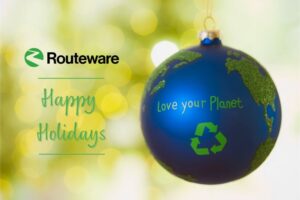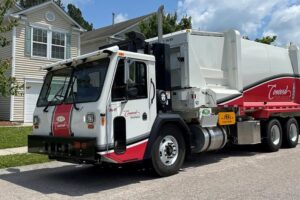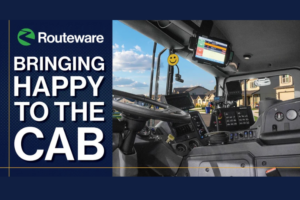Effective waste and recycling communications can be tough. Often, working on solid waste and recycling education and community behavior change can feel a lot like persuasion. But the good news is: help is available!
When you understand the subtle art of making a compelling argument, you can build better campaigns and messaging, target problem areas, and make a lasting impact on your community and the environment through increased program participation and compliance.
Sounds good, right?
And today, we’re going to dive deeper into how to do all of this to ensure you’re more effective than ever in your waste and recycling communications.
How to Be More Effective in Your Waste and Recycling Communications
Empower your people
Simply put, when you empower your people, you empower your community. Your audience needs to know they can make a difference through recycling. Otherwise, it’s just another item on the to-do list. A community that understands its own great power to create change represents an indomitable force for good.
To do it? Provide practical, relatable waste statistics in print, online, and when you’re speaking. It also requires doing your research and including quantities and items that will speak to your audience.
Example: If you recycle XX beverage cans per week, at the end of the year you’ll have saved enough aluminum to build a XX!
Go zombie!
Yep, it’s time to go after the BRAINS! of your would-be recyclers and get into the psychology of recycling with your waste and recycling communications.
According to psychologists, the human brain is hardwired to seek three things: affiliation, accuracy, and positive self-concept.
Make your people feel like they’re part of something bigger, provide accurate information, and encourage ongoing recycling with positive reinforcements. This includes monthly “success statistics” on your website and social media.
An example of a success statistic could be a positive participation percentage. This can also make your recyclers feel as though they’re part of a larger movement.
Focus on digital experiences
For younger audiences, engaging online experiences are another key to maintaining attention and building trust.
To start, provide real-time access to recycling information online. You can do this using website tools and mobile apps that help people to self-serve, and become better recyclers (such as the Collection Calendar or Waste Wizard provided by ReCollect).
Use the 1, 5, 50 rule
New to the 1, 5, 50 rule?
It works like this – the Recycling Partnership’s guidance for matching the message to the medium says you can successfully plant:
- A single idea in a mass medium
- Five things during a face-to-face meeting
- 50 or more ideas in a searchable database
In other words, don’t try to deploy recycling “rules” in your Smalltown, USA community meeting. Instead, argue for recycling itself and present a website URL or your waste and recycling app for specific information.
(Learn more about digitizing your waste program with ReCollect here)
Stay positive
The future risks and current outcomes of climate change and environmental degradation are real—but you can find better ways to tell the story of recycling than through the lens of gloom and doom. According to the University of Arizona, messages framed positively are often more persuasive.
So, focus on the positive aspects of recycling in your waste and recycling communications for the best outcomes.
Example – No: Don’t throw away cans and bottles. Yes: Recycle cans and bottles to save natural resources and keep our waterways clean!
Avoid strongly held beliefs
Most solid waste educators identify as environmentalists, and we can bring all the facts!
However, when the goal is behavior adoption and more effective waste and recycling communications? Then better results can most often be achieved by skipping hot-button issues (such as climate change) in mass recycling messages.
Instead, try sticking to ideas everyone can embrace:
- Conserving natural resources
- Creating local jobs
- Building fewer landfills – no one wants to live near a landfill!
These are all persuasive, pro-recycling talking points. While the melting of polar ice caps due to human-driven climate change is real, focusing on the problem isn’t likely to help recycling champions gain many followers.
Ditch the jargon
Remember when you didn’t know the meaning of MRF? Or when you had no clue what a National Sword was? Your recyclers still don’t know because they don’t work in the industry. Jargon is confusing. So, save it for conferences and peer discussions, not community messaging.
Call your MRF what it is — a municipal recycling facility or recycling center.
Build a digital brand
This may sound scary to waste professionals. Especially those on a tight budget who have typically needed to rely on existing structures to communicate.
The good news is, technology is more accessible and affordable than ever, and out-of-the-box solutions for solid waste communications have come a long way.
Your residents lead increasingly busy lives: They don’t just expect you to provide information digitally, they need it so that they can do the right thing!
Get Help with Your Waste and Recycling Communications
The reality is that there’s a lot that goes into crafting an effective message for your waste and recycling programs. Use these tips to make sure your waste and recycling communications are on point, and you’ll be well on your way to increasing participation in your recycling program!
Looking for more help crafting your messaging? You’re in the right place.
Click the Let’s Talk button to start a conversation with a sales rep and learn more about how we can help.
[/et_pb_text][/et_pb_column][/et_pb_row][/et_pb_section]




